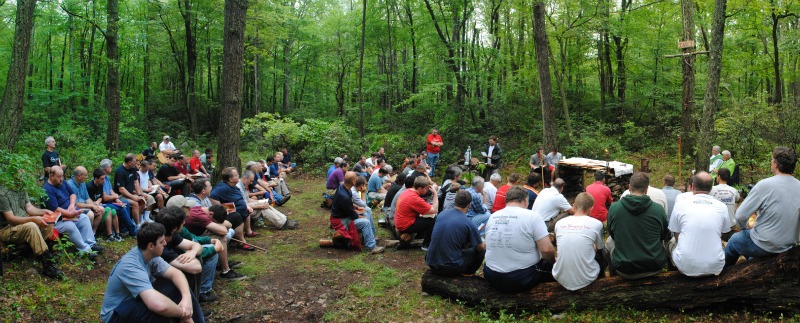Men, and Virtue, and How to Attain It
I wrote an article for “Made in His Image” ministry on men and virtue. Typical stuff for TrueManhood, but something that Maura’s readers might not get a lot of. To help support her and what she’s doing, please click the link to take you to there.
 “Men, and Virtue, and How to Attain It” – CLICK THIS LINK
“Men, and Virtue, and How to Attain It” – CLICK THIS LINK
What MIHI is all about is helping women who struggle with eating disorders and/or who were victimized by abuse. There is currently no other Catholic organization specializing in inpatient medical care for the healing of women, and Maura is working on creating this much needed resource. I greatly applaud Maura for her efforts. The issue of eating disorders and abuse can go hand in hand. For countless numbers of women, young women specifically, a lack of self-worth can spur into many psychological, physical, emotional and spiritual issues.
For men, the issue that is constantly looming over us is the issue of sexual integrity, mostly dealing with pornography. Not every man struggles, but just about every man did, does, or will. For women, one main issue (compared to men’s issues with pornography, lust, etc.) is self-esteem and eating disorders, most of the time stemming from abuse of some kind. Not all women struggle with this, but many do and more will if nothing is done about it.
I plan to write an article soon on the problems that women face when they fail to find their value from the proper source. Watch for that soon. You’ll be seeing more about MIHI on TrueManhood.com in the future.
TrueMan up!
“My Banner is Clear”
At the last two TKM Into the Wild retreats in October, we came across this very powerful and invigorating writing in the Magnificat from Patrick Madrid, a Catholic author and apologist. The timing of this publication was impeccable. It was amazing to hear the men read these words after having gone through so much growth on the weekend. Many men embraced these words and are now Part of the Fellowship of the Unashamed.
THE FELLOWSHIP OF THE UNASHAMED
THE DIE HAS BEEN CAST. THE DECISION HAS BEEN MADE. I HAVE STEPPED OVER THE LINE. I WON’T LOOK BACK, LET UP, SLOW DOWN, BACK AWAY, OR BE STILL.
MY PAST IS REDEEMED, MY PRESENT MAKES SENSE, AND MY FUTURE IS IN GOD’S HANDS. I AM FINISHED AND DONE WITH LOW LIVING, SIGHT WALKING, SMALL PLANNING, THE BARE MINIMUM, SMOOTH KNEES, COLORLESS DREAMS, TAMED VISIONS, MUNDANE TALKING, FRIVOLOUS LIVING, SELFISH GIVING, AND DWARFED GOALS.
I NO LONGER NEED PREEMINENCE, PROPERITY, POSITION, PROMOTIONS, APPLAUSE, OR POPULARITY. I DON’T HAVE TO BE RIGHT, FIRST, THE BEST, RECOGNIZED, PRAISED, REGARDED OR REWARDED. I NOW LIVE BY FAITH. I LEAN ON CHRIST’S PRESENCE. I LOVE WITH PATIENCE, LIVE BY PRAYER, AND LABOR WITH THE POWER OF GOD’S GRACE.
MY FACE IS SET. MY GAIT IS FAST, MY GOAL IS HEAVEN. MY ROAD IS NARROW, MY WAY IS ROUGH, MY COMPANIONS ARE FEW, MY GUIDE IS RELIABLE, AND MY MISSION IS CLEAR.
I CANNOT BE BOUGHT, COMPROMISED, DETOURED, LURED AWAY, TURNED BACK, DELUDED, OR DELAYED. I WILL NOT FLINCH IN THE FACE OF SACRIFICE, HESITATE IN THE PRESENCE OF ADVERSITY, NEGOTIATE AT THE TABLE OF THE ENEMY, PONDER AT THE POOL OF POPULARITY, OR MEANDER IN THE MAZE OF MEDIOCRITY.
I WON’T GIVE UP, SHUT UP, LET UP, OR SLOW UP UNTIL I HAVE STAYED UP, STORED UP, PRAYED UP, PAID UP, AND SPOKEN UP FOR THE CAUSE OF CHRIST.
I AM A DISCIPLE OF JESUS. I MUST GO TILL HE COMES, GIVE UNTIL I DROP, SPEAK OUT UNTIL ALL KNOW, AND WORK UNTIL HE STOPS ME. AND WHEN HE RETURNS FOR HIS OWN, HE WILL HAVE NO DIFFICULTY RECOGNIZING ME. MY BANNER IS CLEAR; I AM A PART OF THE FELLOWSHIP OF THE UNASHAMED.
BY PATRICK MADRID
“Courageous” Opens Tomorrow
September 29, 2011 by admin
Filed under Blog, cultural manliness, Faith, Fatherhood, For Women, manliness, Military, Scriptural Examples, Sports, Virtue
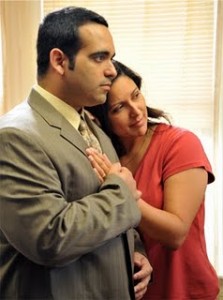 VERY RARELY do I get excited about a movie debuting in the theaters. To put my theater-movie-watching in perspective, the last two movies I’ve seen in the theater have been “Tangled”, which I took my oldest daughter to as a special daddy-daughter date and the 4th Indiana Jones. (That one came out in the summer of 2008.) So, you can see that I don’t frequent the movie theater. Don’t get me wrong, I enjoy movies, but I struggle terribly to find time to go to the theater and I struggle even more with paying ticket prices for movies nowadays! (Tangled was a matinee with a coupon, and someone gave me free passes for Indiana Jones.)
VERY RARELY do I get excited about a movie debuting in the theaters. To put my theater-movie-watching in perspective, the last two movies I’ve seen in the theater have been “Tangled”, which I took my oldest daughter to as a special daddy-daughter date and the 4th Indiana Jones. (That one came out in the summer of 2008.) So, you can see that I don’t frequent the movie theater. Don’t get me wrong, I enjoy movies, but I struggle terribly to find time to go to the theater and I struggle even more with paying ticket prices for movies nowadays! (Tangled was a matinee with a coupon, and someone gave me free passes for Indiana Jones.)
BUT… I must say that I am VERY excited about an upcoming movie that is making its way to the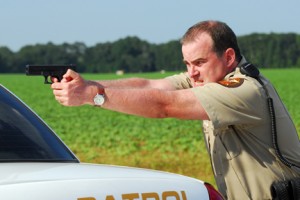 big screen tomorrow (Friday, September 30, 2011). The movie is called “Courageous”. The producers of this film also produced the movie “Fireproof” (and a few others), which I thought was a good movie. If “Fireproof” was good, “Courageous” is great! I had the privilege of pre-screening the movie with my colleagues at our office and have the honor of being part of The King’s Men, one of the ministry-resources for men after they see the movie.
big screen tomorrow (Friday, September 30, 2011). The movie is called “Courageous”. The producers of this film also produced the movie “Fireproof” (and a few others), which I thought was a good movie. If “Fireproof” was good, “Courageous” is great! I had the privilege of pre-screening the movie with my colleagues at our office and have the honor of being part of The King’s Men, one of the ministry-resources for men after they see the movie.
For the pre-screening, I went in very skeptical. I went in believing that Sherwood Pictures was going to make the movie cheesy with Bible innuendos and very heavy, to the point of burdensome, like they did in “Fireproof”. Not so. “Courageous” was very well done and had just the right amount of the “Jesus-factor” so as to still be relate-able as a tool for evangelization purposes with men who are non-believers. This movie has action, drama, suspense, thrills, excitement and a host of other great characteristics. I cannot recommend this movie high enough. Go see it, even at current ticket prices, and show Hollywood that Americans want good, wholesome entertainment and not the garbage they have been spewing for years.
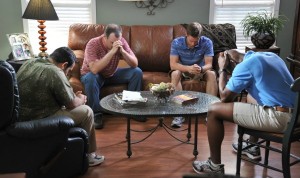 This movie is real. It is about real men, attempting to live through some real life issues and situations. It’s very practical and very helpful. The acting is top notch, the storyline is right on and the cinematography is great. Again, I cannot recommend this movie enough. (The trailer is located on our homepage on the right side.)
This movie is real. It is about real men, attempting to live through some real life issues and situations. It’s very practical and very helpful. The acting is top notch, the storyline is right on and the cinematography is great. Again, I cannot recommend this movie enough. (The trailer is located on our homepage on the right side.)
After you see the movie, you may want to get involved. If you desire to follow in the example of the men in the movie, and become part of a small men’s group, I have a turn-key solution for you. I’m happy to recommend a format for a men’s small group meeting that is easily duplicated, dynamic, and proven. We do not charge dues, have no membership and offer incredible support to our leaders. Don’t try to reinvent the wheel – we have the track record of a program that works. Men’s lives are changed because of it. Men who invest themselves into a men’s small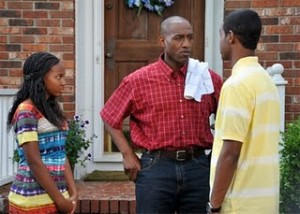 group experience extreme growth and positive change. Don’t wait another day! If your parish/church/group/city/area gather enough men together, I can personalize a leader’s training workshop for you and train all of your facilitators in a day-long training session, complete with resource manual and all the how-to’s and nuts and bolts you could ever need.
group experience extreme growth and positive change. Don’t wait another day! If your parish/church/group/city/area gather enough men together, I can personalize a leader’s training workshop for you and train all of your facilitators in a day-long training session, complete with resource manual and all the how-to’s and nuts and bolts you could ever need.
If we don’t currently have any groups nearby, maybe this is the day you step up and start one. Contact me for all the resources and support you need. Info@TrueManhood.com.
TrueMan up!
Mentoring Boys into Virtuous Catholic Men
July 28, 2011 by admin
Filed under Blog, Faith, Fatherhood, manliness, Scriptural Examples, Sports, Virtue
We concentrate our energy on forming and building men. At Fraternus, a great Catholic apostolate,  they concentrate on forming boys into men. “Mentoring boys into virtuous Catholic men.” That’s what they’re all about.
they concentrate on forming boys into men. “Mentoring boys into virtuous Catholic men.” That’s what they’re all about.
What’s happening in these boys’ lives is transforming, and will make an impact on them for years to come. For boys, you have to engage them with the things that speak to their inner being – the things that make them wild, rough, adventurous and challenged. This is the way Christ lived, that’s why it’s so appealing to boys. It’s real, it’s authentically masculine and it’s really fun.
When you can reach a boy, you can teach him and form him. When a boy is taught and formed properly, he becomes a great man. Our world needs a lot of great men.
Please take a few moments to watch their video and visit their website.
TrueMan up!
The Catholic Church is Booming
 I know the reality of reports and surveys and statistical data – you can make them say what you want to. We see skewed results all the time. There are, however, some statistics worth looking at. For instance, statistics like the information below, is encouraging and should give us (faithful Catholics) hope. I like this information because it doesn’t come from a particularly orthodox source. We (Catholics) are often the butt of jokes, the slander of the day and ridiculed and persecuted for our conservative (truthful) beliefs. The last allowable form of prejudice in our land – anti-Catholicism. Maybe as we continue to flourish and continue to seek truth, we will band together and put an end to the ludicrous culture of death.
I know the reality of reports and surveys and statistical data – you can make them say what you want to. We see skewed results all the time. There are, however, some statistics worth looking at. For instance, statistics like the information below, is encouraging and should give us (faithful Catholics) hope. I like this information because it doesn’t come from a particularly orthodox source. We (Catholics) are often the butt of jokes, the slander of the day and ridiculed and persecuted for our conservative (truthful) beliefs. The last allowable form of prejudice in our land – anti-Catholicism. Maybe as we continue to flourish and continue to seek truth, we will band together and put an end to the ludicrous culture of death.
From Al Kresta earlier today:
“Catholic League president Bill Donohue comments on new survey data profiling Catholicism:
All we ever hear from the wild-eyed critics of the Catholic Church, including the dissidents within, is that the Church had better “get with it” and change its teachings on abortion, homosexuality and women’s ordination. Yet it is precisely those religious institutions that are the most liberal on these issues—the mainline Protestant denominations—that are collapsing. Not so the Catholic Church. Indeed, its numbers are going north while the mainline denominations are going south.
with it” and change its teachings on abortion, homosexuality and women’s ordination. Yet it is precisely those religious institutions that are the most liberal on these issues—the mainline Protestant denominations—that are collapsing. Not so the Catholic Church. Indeed, its numbers are going north while the mainline denominations are going south.
The latest findings by the “Emerging Models of Pastoral Leadership” project, a collaborative effort with Georgetown University’s Center for Applied Research in the Apostolate, are illuminating. In the last 40 years, the Catholic population has increased by 75 percent; it has grown by 50 percent since 1990. More important, Catholic attendance at Mass is up 15 percent since 2000. And in the last five years, contributions have increased by 14 percent. It is also important to note that there has been a 40 percent increase in Latinos in the Church over the past five years.
Shedding more light on the statistics is a study released a few months ago by the Pew Research Center’s Forum on Religion. Its “Landscape Survey” found that of those Catholics who have left the Church, roughly half became unaffiliated while the other half became Protestant. Regarding the latter half, only 23 percent did so because of the Church’s teachings on abortion and homosexuality; only 16 percent left because of the way women are treated. Importantly, two-thirds of these Catholics elected to join a Protestant evangelical church.
In other words, disaffected Catholics who left for another religion opted to join a more conservative church. That they did not run down the block in search of a mainline denomination—one that entertains the liberal agenda on issues governing sexuality and women—is telling.
It’s time some people took a hard look at the data and made some hard choices. This is great news for the Catholic Church.”
“Skirt Covering the Knees, Leg Warmers, Boots, a Half-Sleeved Shirt…”
July 23, 2011 by admin
Filed under Blog, cultural manliness, Faith, manliness, pornography
These are words that have never come out of my mouth as to something I was wearing. Other than the boots part. Skirt? Leg Warmers? Geez. I thought this story was a joke when I first saw it about two weeks ago, but apparently, it’s not. This guy actually exists. I looked up his “art”… very disturbing. I don’t recommend it. In fact, I suggest you don’t. It’s a bit pornographic and very sacrilegious. There are very clear and problematic issues with this male’s stance… it is the same problem that we see often in our culture; the oxymoron of feminine-men and masculine-women. Put plainly, when men and women lose their gender roles and responsibilities, there is a disorder happening and things get all out of whack. As I’ve written several times before, our Church and many of Her leaders (including Blessed John Paul II) emphatically teach “equal in dignity, difference in roles.” It’s the only thing that makes sense.
I’m glad the Vatican stands up to this sort of behavior. If an institution in America did this, they’d be sued, all over the lib-media and denounced as intolerant and judgmental. The Vatican plays by different rules. Thank goodness. Here’s the story…
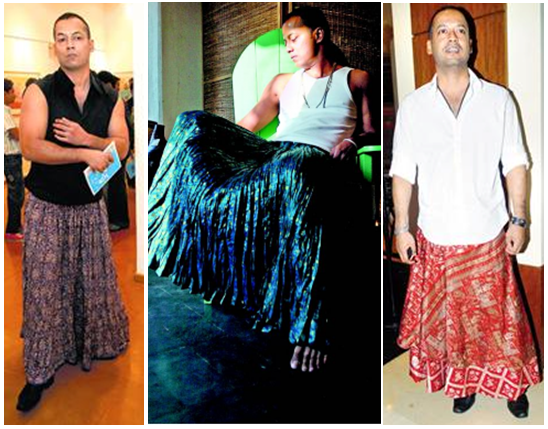 “Mumbai-based artist Julius Macwan has felt strongly about women’s causes for a long time — in solidarity of which he wears skirts, a statement that he feels underlines his connection with and sympathies for the fairer sex. But this very ‘rule breaking’ got him into a bit of a conundrum in Rome last week.
“Mumbai-based artist Julius Macwan has felt strongly about women’s causes for a long time — in solidarity of which he wears skirts, a statement that he feels underlines his connection with and sympathies for the fairer sex. But this very ‘rule breaking’ got him into a bit of a conundrum in Rome last week.
Julius, a Roman Catholic by birth, inspired by Italy’s greats Michelangelo and Bernini in his art, named after Roman emperor Julius Caesar was ironically stopped at the very gates he was longing to pass through for a very long time — he was forbidden from entering the Vatican because he was in a skirt.
“I was in a state of shock, my mind was numb,” Macwan, now back in Mumbai, recalled. “My most famous work is inspired by the Pieta, it is also called the Pieta/The Death of Magic. I wanted to see the Pieta in the Vatican, had dressed formally for the occasion — skirt covering the knees, leg warmers, boots, a half- sleeved shirt. You can say my outfit was inspired by Roman warriors of the past.”
It might be interesting to note that Macwan’s Pieta/The Death of Magic depicts a self portrait of Julius himself, in a skirt, holding the body of a woman in a bikini, representative of the magic of womanhood dying in a male-controlled world. Macwan’s Pieta is now part of Harsh Goenka’s collection.
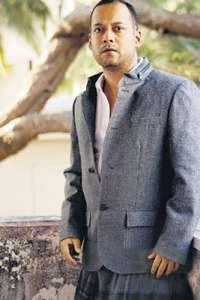 The original Pieta, (which has four versions, the most famed being in the Vatican) sculpted by Italian genius Michelangelo depicts the Virgin Mary distraught as she holds the body of Christ.
The original Pieta, (which has four versions, the most famed being in the Vatican) sculpted by Italian genius Michelangelo depicts the Virgin Mary distraught as she holds the body of Christ.
Despite his knees being covered, Macwan was stopped at the gates and asked if he were Scottish (because his attire resembled the kilt).
“I didn’t know till I reached the Vatican that the dress code requires shoulders and knees to be covered. Mine were covered, though I was in a skirt, but when I said I wasn’t Scottish, the person at the gate wouldn’t let me through,” he said. The person seemed to be a priest – he was in a white buttoned smock. “I was thrilled to be at the Vatican, I’m Roman Catholic, named after the Roman Caesar, I was in his city, my work deals with the Pieta, I was wearing Roman-inspired clothing, thinking in this visit, destiny completes itself.” Clearly, it was not to be. The person at the gate pointed to his skirt, and said, ‘You cannot go in. If you argue, I’ll call the police.”
Macwan didn’t go in. He feels, however, that “more than racist, the episode was chauvinistic.” “I was stopped because I wore a skirt, not because I was showing my knees. There was another guy going in later, in what appeared to be swimming trunks, his knees were showing. But he was let in.”
Though he didn’t get to see the Pieta, Macwan says he feels ‘strangely empowered’ by the incident. “I was in a skirt, I was not allowed in – my work deals with this theme.” And he is not registering any complaints against what he calls the ‘fundamentalism’ of religion. “Though I was humiliated, I am not complaining.” Macwan will instead, channel his experience into another Roman inspired work of art – this time depicting the scene outside the Vatican!”
Welcome to Philly, Archbishop Chaput!
July 19, 2011 by admin
Filed under Blog, Faith, Fatherhood, manliness, Scriptural Examples, Virtue
Okay, so he’s not here yet (will be installed on Sept 8, 2011), but the faithful in Philadelphia are very excited to welcome him! Archbishop Chaput is an incredible shepherd and has always been wonderful to me on a personal level. I had the privilege of meeting him while in college; while still an anti-Catholic/sola scriptura/ evangelical. I then was able to meet him several more times, post reversion, working with FOCUS (The Fellowship Of Catholic University Students) and then on a more personal note when I was Director of Catholic Campus Ministry at the Air Force Academy; he was always wonderful about coming to the Academy to speak to the Catholic cadets. His leadership is second to none, but his humility is that of Christ. He is an incredible man and we are blessed to have him as our new archbishop.
Archbishop Chaput is an incredible shepherd and has always been wonderful to me on a personal level. I had the privilege of meeting him while in college; while still an anti-Catholic/sola scriptura/ evangelical. I then was able to meet him several more times, post reversion, working with FOCUS (The Fellowship Of Catholic University Students) and then on a more personal note when I was Director of Catholic Campus Ministry at the Air Force Academy; he was always wonderful about coming to the Academy to speak to the Catholic cadets. His leadership is second to none, but his humility is that of Christ. He is an incredible man and we are blessed to have him as our new archbishop.
(Our journeys are similar… from Kansas, to Colorado, to Pennsylvania. And, I hear he’s a Steelers fan!)
Here’s an interview with him from Catholic News Agency…
Q: You must have some interesting thoughts about being appointed to the See where the Declaration of Independence was written, the “City of Brotherly Love” where the first American male saint — St. John Neumann – was bishop.
A: I don’t think it’s real for me yet. I could give you half a dozen reasons why other men might be more qualified, and why I’m the implausible choice. But I do believe in the Holy Father’s wisdom, so I accept that the See of Philadelphia is where God wants me to be. My life as a priest – first as a Capuchin Franciscan and now as a bishop – is shaped by a commitment to obedience; obedience to God as Father. The voice of the Pope is the voice of the Father for me.
I’m going to miss the Archdiocese of Denver very, very much. Colorado has been home to me for 14 years. The priests and people there have been unfailingly generous. They really are my family, and a part of my heart will always be in Denver.
But I look forward to embracing the new family that God is giving to me, the family that is the Church of Philadelphia. Over the years I have had many friends, both priests and laypeople, with roots in Philadelphia, and I’ve always been struck by their faith and their goodness. So it’s a great privilege to be sent there. The fact that Philadelphia is where of the Declaration of Independence was signed and the center of so much of our country’s early history, means a great deal to me. I think the United States has been blessed by God in unique ways. Because of that blessing, America has a duty to be a blessing for the world and for all people. I also think that words like “the City of Brotherly Love” should be more than just a good tourist slogan. Philadelphia is one of this country’s truly great cities, and I want to be part of renewing and deepening the best in this community.
I’ve been praying to St. John Neumann a lot since getting the news. I want to love the priests and people of Philadelphia with the same zeal he brought to his ministry. At least I can guarantee that no one will work harder, or try harder, than I will.
Q: What are the main challenges you might face in your pastoral mission?
A: The biggest challenge, not just in Philadelphia but everywhere, is to preach the Gospel in a way that captures the imagination of God’s people. The biggest task that lies before us is evangelization. We need to have confidence in the Gospel. We have to live it faithfully, and to live it without compromise and with great joy.
The Church in Philadelphia is at an important point in her life. It’s not a time to be embarrassed about what we believe. In fact, it becomes even more crucial to preach the Gospel – both within the Church and outside the Church.
Q: Regarding the grand jury report and allegations involving the clergy, what needs to be done in restoring the mission and the morale of the priesthood? What are your ideas about the priesthood, and also the relationship with the laity?
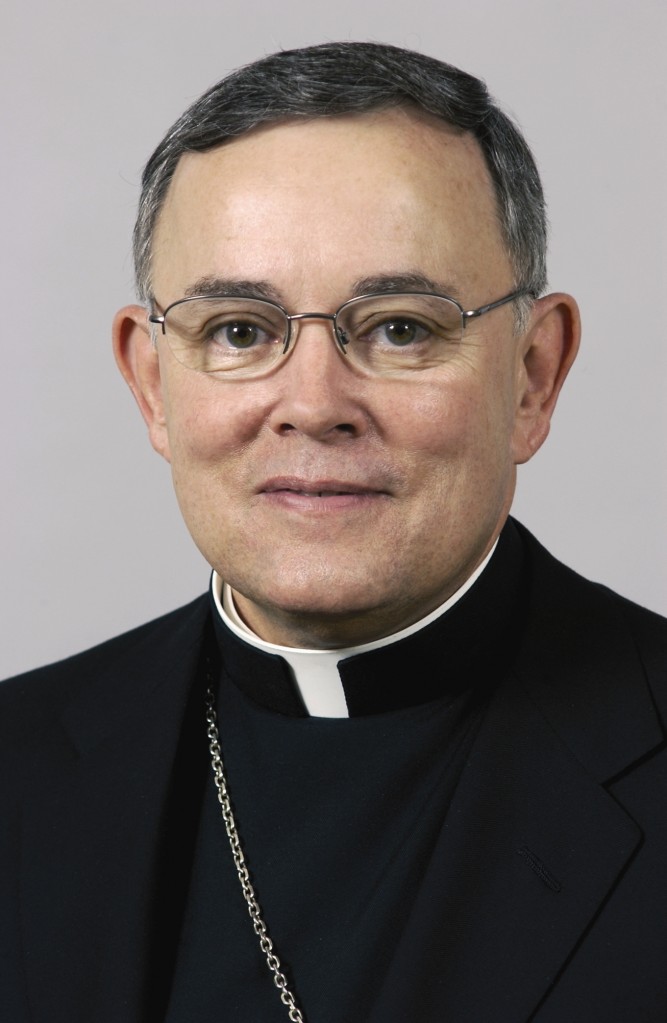 A: I haven’t read the grand jury report yet, and it will be awhile before I fully understand the issues. I need to hear from the people involved in these matters and to learn the facts before I comment.
A: I haven’t read the grand jury report yet, and it will be awhile before I fully understand the issues. I need to hear from the people involved in these matters and to learn the facts before I comment.
I do know that priests’ morale across the country has been seriously wounded by the abuse scandal. I’m sure the priests of Philadelphia carry this burden in their own unique way. But we know that Jesus, when he chooses men to be priests, chooses them with a brother’s love, and I want to be a sign of that love to my brothers. We have to deal with scandal in an honest, thorough, confident way. We can do that, even when it’s very painful, because we know that Christ rose from the dead. “Jesus Christ is risen” — these aren’t just powdered words; they’re a statement of fact. That should give us confidence that what happens in the Church, even when it seems death-dealing, can be turned into a moment of resurrection.
Q: What catches your attention most about the local Church in Philadelphia?
A: I have a lot to learn about Philadelphia, but I’m eager to get started. I did live in western Pennsylvania for 10 years – first as a seminarian, then as a seminary professor, and eventually as a part of the administration of the Capuchin Province of St. Augustine based in Pittsburgh. My time in the state was delightful. I look back on it with great joy. The men and women of Pennsylvania that I’ve met are wonderful people; good, generous and creative. I look forward to being a part of their lives.
Q: You’re a Native American and quite proud of your heritage. Can you talk a little bit about your background, and what that means to you?
A: I’m Native American on my mother’s side. I’m a member of the Prairie Band Potawatomi tribe. Our reservation is in northeastern Kansas.
Being Indian was probably the entry point for my becoming a bishop. One never knows why one becomes a bishop, but my first assignment was the Diocese of Rapid City, South Dakota. I suspect I was sent there was because of my engagement with the Native American Catholic community in the United States. The Holy Father was looking for a way to reach out in special love to the native people. So I see my episcopacy, in some ways, as born from that part of who I am.
The Native American people – the original inhabitants of this land – are a very diverse group with many, many gifts. I’ve always hoped that through my service as a bishop, those gifts can be recognized by the Church all the more, and that the Church can better meet the needs of Native people.
I was blessed to be the first Native American archbishop, and my people were honored by that.
Q: You’re also a Franciscan Capuchin. St. Francis had a pretty radical approach to the Gospel, and the Capuchins were known as reformers within the Franciscan community. How does this shape how you see the Church’s task, and your role as a leader?
A: Francis was radical in the root meaning of the word “radical,” which means to go “to the root” of the matter. He wanted the friars to live the Gospel clearly, without compromise. The word he used was, “without gloss.” It was a custom, in the Middle Ages, to develop commentaries on the Gospel, and sometimes those commentaries would explain away the Christian’s responsibility to live the Gospel without compromise in every moment of our life. Francis rejected any kind of effort to diminish the demands of the Gospel.
Of course, I have to live that discipline personally in my own life. That’s the most important part of my Capuchin identity. But then I have to preach the Gospel in the same kind of way, in a way that’s clear, that’s always fresh, and always without compromise.
Before anything else, we’re called to be Catholics. That should be the defining part of who we are. Whether we’re Indians or Germans or Irish; whether we’re Democrats or Republicans, we are Catholic first. Everything else is secondary. Francis called his brothers not only to live that Catholic identity personally, but to preach that unvarnished Gospel with clarity. And I hope that my service as a bishop always enables me to do that.
Q: You’ve talked about this issue of Catholic identity frequently. Why is that so important to you? Is there something about American culture that encourages people to compartmentalize their faith from the rest of their lives?
A: Many of the dominant themes of our time work contrary to the Gospel. All of us who are Catholics are very much influenced by our culture and by our society’s criticism of the Gospel. Because of these pressures, Catholics are often tempted to be embarrassed by their faith, and to make decisions that are compromised by our desire to somehow please the world, while satisfying God. We often can’t do both. We always need to choose to please God first.
We need the support of the Church, the help of our brothers and sisters in faith, to live the Gospel in this difficult environment. That’s why I’ve spent so much time in these last years, as a bishop, writing and speaking about this. I want the Church to have confidence in the Gospel and Christians to support one another, regardless of the opposition to the Gospel in our culture.
We owe it to our country and the age we live in, to be faithful Catholics. If we’re good Catholics first, then we’re good citizens, and if we’re good citizens, then we’ll be a force of transformation for justice in the world. If we don’t live as faithful Catholics, we betray the Gospel. We forfeit the opportunity God gives us to make a significant difference for the evangelization of culture.
Q: Many Catholics now serve in Congress, in state houses, in governors’ mansions — we even find Catholics as a majority on the Supreme Court. But we often don’t see the content of Christian social teaching reflected in society. Does this relate to that issue of Catholic identity?
A: There’s an obvious temptation, in political life, to compromise Christian virtues and values because of the pressures of the society around us. But I wouldn’t first point to governors, or congressional representatives, or Supreme Court justices. I’d point to ourselves. If our political leaders lack conviction about their faith, it’s because the members of the Church lack conviction about their faith. Political leaders are no different from the rest of us. So if we point fingers at them, we’re also pointing fingers at ourselves, and at the broader Church community.
So the Gospel should be preached, first of all, in the Church. Naturally, we need to preach it to political leaders as well. But they’re not alone – not by a long shot — in their tepidity and compromises of the Gospel. If Catholics in their homes and parishes understand that, they’ll realize that a serious conversion needs to take place in all our lives, and not just in the lives of politicians.
Q: If this applies to every member of the Church, how do you think it applies to bishops? What do you think is the role of a bishop in American society?
A: A bishop, before he’s a bishop, is a Christian. And before he’s ordained, he’s baptized. So I think that anything that we say about Christians, we have to say about bishops, too. And bishops, because they’re raised up to be a sign of the presence of Christ in the Church, need to live the Gospel more clearly and more authentically, without compromise, than anyone else.
We can’t preach to others what we don’t embrace ourselves. And because we sometimes don’t practice these things ourselves, sometimes we’re embarrassed to preach these things to others. This is also why those who are called to preach the Gospel might sometimes be silent.
So I think that bishops always have to be engaged in the process of their own personal conversion – prior to calling others to conversion. At the same time, we can’t let our sins and our failures cripple us; otherwise the Apostles themselves would have stayed silent. We have to practice what we preach. But even if we don’t, we always have to preach the Gospel. And if we preach it to others, conscious that we need to be converted ourselves, then things really will begin to change.
Q: From your perspective as a bishop, where are we as a Church, and as a nation, on the issue of abortion?
A: I think that our country, in some special sense, is going to be judged by God on that issue. If we’re not able to protect the most vulnerable members of our society, then we aren’t living up to the public commitment we have as a nation to protect the life, liberty, and happiness of every individual. The unborn child certainly shares with us our human dignity, and has a right to those protections. That’s why I believe this remains one of the fundamental issues of our time. We can’t be a people of justice if we don’t protect the life of the unborn child.
This is, of course, just one of the pressing issues of our time. Also vitally important is the question of the meaning of marriage. Family life is the foundation stone of all community. It’s the first community that we’re born into. The health of our families will lead to the stability or weakening of our society.
The Church’s efforts today, to protect the traditional meaning of marriage, are on behalf of stable family life, for the sake of children. Marriage is a relationship of a man and a woman, in a stable and faithful way, for the sake of children. The most important thing for our development into mature adults is that we know that our fathers love our mothers and our mothers love our fathers. If we don’t know that, then a certain kind of instability enters our lives. Anything we do, as a country, to undermine that meaning of marriage, creates a danger – a clear danger – to the long-term health of our country.
Q: The fact that civil laws favoring so-called gay “marriage” have been approved in several places, in the last two years, has led some people to say that the Church, and especially the bishops, have “lost the argument” in the American culture. How do you think individual Catholics should approach this issue in their communities? And what is the right role of the institutional church and the bishops?
A: We only lose when we stop working and struggling for what we believe to be true. In a very general sense, the battle was “lost” the day after Golgotha. Except the disciples didn’t get the memo.
I don’t think we’ve lost the marriage issue at all. Even framing the question that way shapes the answer in a wrong direction, because the language of a debate conditions how we think. If we concede the language, we concede the issue. I do think we’ve been allowing ourselves to lose the marriage debate for years, rooted in our confusion about individual and community rights, and our fear of being portrayed as “against” other people. Catholic teaching on sexuality and marriage is for human dignity; it is for human happiness and the virtuous development of family and society. It is “against” only those behaviors that undermine those goals. When people try to frame Catholic belief as an intrinsic hostility for individual persons or groups, they are not being honest.
Cohabitation today without marriage is quite common, with children being born outside the context of married love, and many people are confused about what marriage really means. Generally, people think “marriage” means a loving relationship between two people that has a sexual component. But that’s not what marriage means. It means a specific kind of loving relationship, for the sake of children. And the more we’re confused about that, the more damage we do to ourselves. So we need to have confidence in our faith and keep fighting this fight with a spirit of serenity. The Gospel is true, and the Church is right about the purpose of human sexuality, whether our critics like the message or not. So much is at stake –not just the moral teaching of the Church, but the health of our communities and our country. If we love our country, that means we fight for the things that protect our country and make it strong.
Q: Four years ago you wrote a book on Catholic political and social engagement, “Render Unto Caesar.” If you had to write that book today, would it have a different accent? In other words, what issues look most important to you today for Catholic political involvement in the United States, and in general, Catholic involvement in the public square?
A: When I wrote that book, four years ago, I was responding to a request from a friend – a young husband and father — who had run for state office, but found it troubling because of the pressure in party politics to embrace issues contrary to Catholic belief. I wanted to engage Catholics in a reflection on their responsibility for our country, and how politics can never be separated from faith even though “separation of Church and state,” properly understood, is a principle that’s worked well in our country. My point is that separation of Church and state was never intended to mean that we separate our faith from our social, economic and political life.
I have a high regard for the book’s publisher, and we’ve talked about doing an updated edition of “Render Unto Caesar.” Since my appointment to Philadelphia, I’ve had a certain kind of enthusiasm for a new version. So, give me some time, and you never know. Maybe I’ll have some additional thoughts on faith and public in the 21st century.

